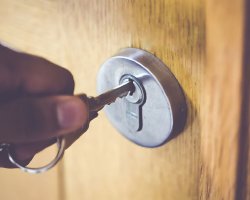Nine Ways to Keep Your Kids Drug-Free this Summer

When school lets out, any child not spending the summer in a full-time program will have a lot of time on his hands. Youth old enough to be left home alone will lack supervision, kids with bicycles, cars, cell phones and computers have the ability to communicate with anyone and range far and wide in search of adventure—or illicit substances. Keeping young people safe this summer is a significant challenge parents may not be prepared for. Here’s some advice on a number of things you can do to keep kids safe and drug-free this summer. Pick the ones you like best or try out all of them.
ONE.
Talk to your kids about drug and alcohol use at the beginning of every school break—summer, Easter, Christmas. Be very clear about your expectation that they will remain drug and alcohol-free, no matter what situation they find themselves in. Even if they don’t appear to be listening, your message will get through.
TWO.
Know where your children are going. Have the phone numbers of the homes they will be visiting or staying at. Be willing to check up on them to determine if they are where they said they were going to be. If they are going to a sleepover or going to a party, talk to the other parents ahead of time and make it very clear that you expect no alcohol to be served to underage guests. These days, you also need to make it clear that marijuana should not be used around or by your child.
THREE.
Prepare your child for the subtlest types of peer pressure which can just be the desire to fit or have the same kind of “fun” their friends are having. If your child winds up at a party where alcohol or drugs are used, the pressure to fit in can overwhelm your child’s usual good judgment. Explain to them that you know it’s hard to refrain for joining in if a beer or joint is passed around. They must be mentally prepared to leave a party when drugs or alcohol show up.
FOUR.
Open the floor to conversations in which your children can talk about friends they saw drunk or using drugs, what they thought of it, did it look like fun. Find out if they have seen photos of videos of their friends drunk or using drugs on social media. Let them ask questions and voice their opinions. Remove the mystery and secrecy.
FIVE.
Find out your children’s hopes and dreams for the next few years or beyond, if they are thinking this far ahead. Discuss the consequences of drug or alcohol use and how it can shatter dreams. If you find news items about someone who struggled with drug use or addiction and destroyed a career or a family, this might give you the basis for one of these conversations.
SIX.
Encourage your child to pursue their own interests over the summer. Help them get lessons or supplies for creative projects or to learn subjects they are interested in. Follow up when you get home each day and find out what progress they made that day. Ask them to show you their projects or lessons.

SEVEN.
If financially possible, get them into summer programs of their own choosing. There are plenty of science, music, art, crafts, team sports and athletic programs available in most towns. If that’s not financially possible, contact your local parks and recreation departments for free or low cost activities near your home. Don’t overlook scholarships you might be able to take advantage of.
EIGHT.
One of the most important things you can do is set a good example of sobriety. Drink moderately or not at all, never use any illicit drugs and use prescription drugs exactly as recommended. Work with your doctor to minimize reliance on prescription drugs and make it known you are doing so. Your child will learn the lesson that not every one of life’s problems can be solved with a drug. This may be a more powerful message than you realize.

NINE.
Get together as a family as often as possible. Don’t let the wide-open schedule of the summer disperse family members to the four corners of the globe. Make sure your kids are home for dinner most nights. Plan family activities for weekends.
As you use these suggestions, you will surely come up with others of your own creation. Never underestimate the power and authority you possess in your children’s worlds. Even if your children don’t say it, they know you care. Even if they complain, they know in their hearts you are protecting them.
Start when they are young, be consistent, be present. These days, keeping your kids drug-free could be the most important parenting skill of all.


 ®
®